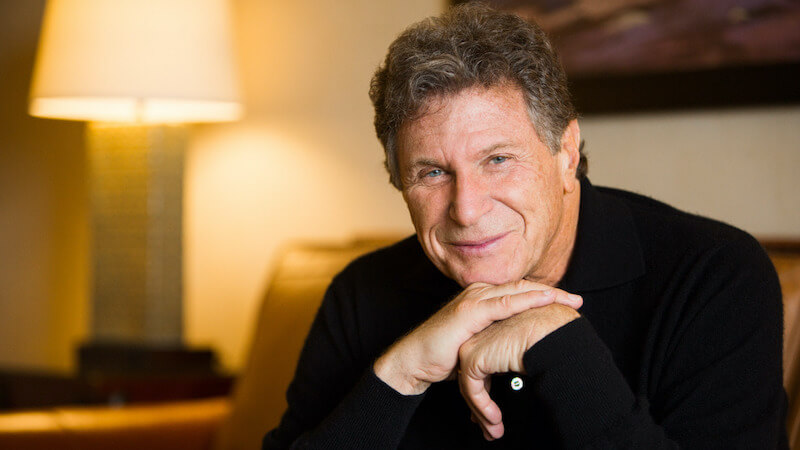
"I prefer to think about what we’re doing right now as “cocooning.” Just as a caterpillar takes time to cocoon in order to reconstitute itself, before re-emerging as a butterfly, I believe we’re in the middle of a COVID-19-driven pause, a collective chrysalis. During this unique pause, we have an ideal moment to stop, think, reflect on what truly matters most in life and how each of us might become the very best version of ourselves."
—Ken Dychtwald
In September, Ken Dychtwald, a longtime friend of Esalen, marks his 50th anniversary of when he first came to Esalen to study and live at the age of 20. A former resident, group leader, donor and supporter, Ken is also a psychologist, gerontologist and CEO of Age Wave, the nation's foremost thought leader on issues relating to an aging population. His best-selling books include Bodymind—Age Wave and Healthy Aging, and his new book, What Retirees Want: A Holistic View of Life’s Third Age, explains how the aging of the Baby Boomers will forever change our lives, businesses, government programs and the consumer marketplace.
Ken and his wife, Maddy, were the recipients of the 2016 Esalen Prize for their tireless efforts to make a difference in the lives of older adults globally. Ken opens up about longevity in modern times, his new book and much more with Esalen News.
Esalen News: Much of America, including where you live in Northern California, is still under some level of shelter-in-place order. How has your experience been?
Ken Dychtwald: I’ve chosen not to think about this as “sheltering” in place. When I was a kid, we had a bomb shelter in our house in Newark, NJ. That was clearly protection from fear. I prefer to think about what we’re doing right now as “cocooning.” Just as a caterpillar takes time to cocoon in order to reconstitute itself before re-emerging as a butterfly, I believe we’re in the middle of a COVID-19-driven pause, a collective chrysalis.
The whole world is going through a near death experience—perhaps the life you were living just died or you’re worried about someone you love dying or you’re possibly even thinking about your own mortality. During this unique pause, we have an ideal moment to stop, think, reflect on what truly matters most in life and how each of us might become the very best version of ourselves. Maybe I’m a dreamer, but I’m hoping we can all come through this together and find a way to make a better world.
While you’ve been cocooning, you also celebrated your 70th birthday. How did that feel?
It was peculiar because the day before my birthday in late March, I was supposed to be keynoting the general session before thousands of people at the American Society on Aging conference in Atlanta. I thought it would be a great way to highlight the transition from my seventh to my eighth decade of life. From there, my wife and I were scheduled to fly to meet our kids in the Caribbean to spend the week bonding, playing and partying. Instead, for my birthday, we had a group Zoom call.
Our daughter Casey, who’s 33 and lives in Los Angeles; our son Zak, who is 30 and had been living in China but was forced to hunker down in Brooklyn; and my older brother Alan, who lives in Florida. I asked something different of my wife—rather than trying to find a gift, I’d just like for each of you to tell me three things from your heart. First, what do you feel was the best experience we ever had together? Second, what quality of mine do you love the most? And third, what has been the best day of your life so far?
It turns out, what they said in that Zoom call were the most wonderful birthday gifts I could ever receive. I had felt sad going into my birthday: I couldn’t travel, I couldn’t be with all the people I love most, except my wife, but that call helped me feel so much gratitude for this life I’m living. It was the best birthday I ever had.
Do you feel aging has been an ascent for you—or a descent?
I’d say that physically I’m trying to keep it from being a descent. My lifelong commitment to body/mind health has been paying off and I think I’m doing pretty well. But I don’t have the body or vitality I did when I was young.
And even though I’ve been working out and also doing yoga for 50 years, I have to work diligently to manage my stress, high blood pressure and hypercholesterolemia. However, I would say that emotionally and mentally, I feel like my personal aging has most definitely been an ascent.
I like to think that I’ve not just been having birthdays but instead, in Star Trek fashion, I’ve been circling the sun 70 times and it’s been quite a wild ride. I feel a far greater sense of perspective than when I was younger—and every now and then I notice some buds of wisdom trying to bloom. I also feel far more appreciative of all the people I love and the friends I’ve made and the work that I’ve been fortunate to do.
Let me also add that watching the nurses and doctors on the front lines during this pandemic, I have deeper appreciation for the greatness in so many people and for how hard so many of us are trying. Lately, I’ve also come to realize that I don’t want to be young. Although I like the idea of feeling “youthful,” I am more drawn to wanting to be “useful” than youthful.
COVID-19 has altered our lives. What advice do you have for our community?
Here are a few suggestions for how we might best glide through this time of metamorphosis and emerge transformed:
What can you tell us about your new book What Retirees Want: A Holistic View of Life’s Third Age, which was published in July?
In 2004, my collaborator Bob Morison and I wrote the McKinsey Prize-winning article in the Harvard Business Review titled It’s Time to Retire Retirement. We became convinced that the word “retirement” is a far too small and narrow description for the new lifestage that’s now emerging. We believed that it was time to re-identify this formerly-known-as “retirement” lifestage to mean something far bigger and worthy of a new name.
How so?
A compelling philosophy has emerged from the European tradition of adult education that provides a simple yet visionary orientation to this issue. Referred to as “Le troisieme age”—the Third Age—this point of view proposes that there are three "ages" of man, each with its own special focus, challenge and opportunity.
In the First Age, from birth to approximately 30 years of age, the primary tasks of life center around biological development, learning and survival. In the Second Age, from about 30 to 60, the concerns of adult life focus on issues pertaining to the formation of family, parenting and productive work. Until the last century, most people couldn't expect to live much beyond the second age, and society at that time was thus centered on the concerns of this age.
And the Third Age?
With the rise of longevity and the coming of the age wave, a new era of human evolution is unfolding—the Third Age. There are new purposes to this Third Age of life. First, with the children grown and many of life's basic adult tasks either well under way or already accomplished, this less pressured, more reflective period allows the further development of the interior life of the intellect, memory, imagination, of emotional maturity, and of one's own personal sense of spiritual identity.
The third age has another dimension: there’s plenty of time and opportunity to try new things. Not just be reflective but explore new facets of life. Not just share wisdom but contribute directly to society in new ways. Not just “retire,” but maybe have an encore career, another modified go-round of life’s second age.
The Third Age is now full of potential for individuals, families and society. The scope of this potential is enormous and unprecedented. And from this perspective, elders are seen not as social outcasts, but as a living bridge between yesterday, today and tomorrow—a critical evolutionary role that no other age group can perform.
Learn more about Ken Dychtwald and his new book here. All of the earnings from this book—in perpetuity—are being given to the American Society on Aging, a professional association that played a very positive role in Ken's early decades in the field.
To experience Ken reflecting on The Alchemy of Esalen, enjoy this link.
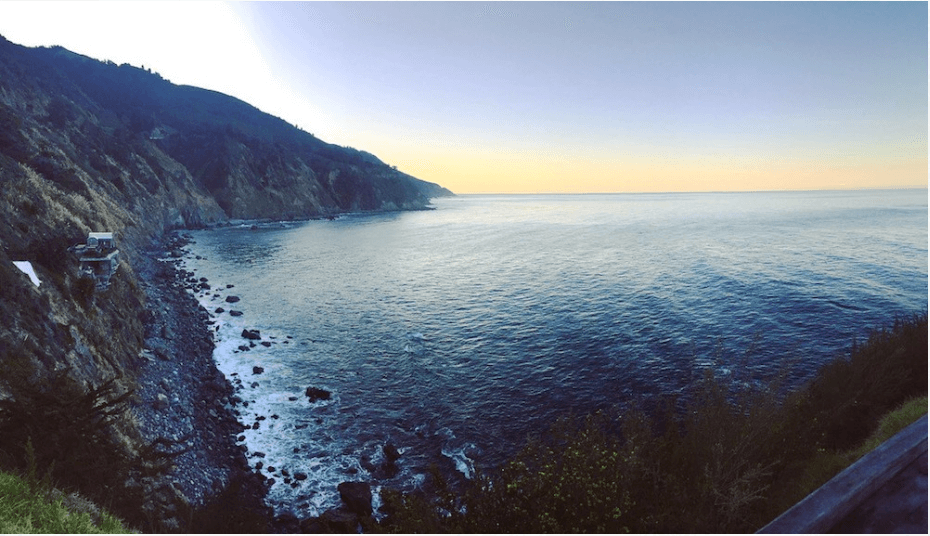
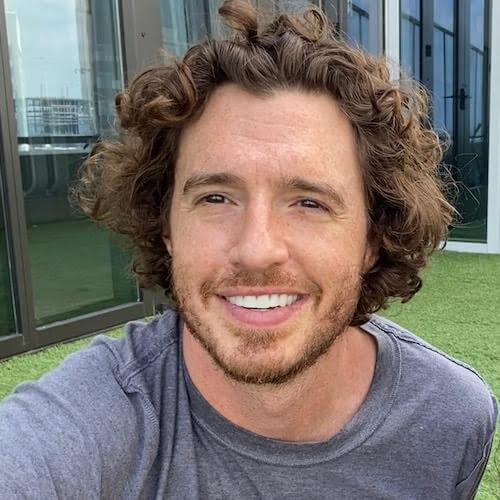
“Remembering to be as self compassionate as I can and praying to the divine that we're all a part of.”
–Aaron
“Prayer, reading, meditation, walking.”
–Karen
“Erratically — which is an ongoing stream of practice to find peace.”
–Charles
“Try on a daily basis to be kind to myself and to realize that making mistakes is a part of the human condition. Learning from our mistakes is a journey. But it starts with compassion and caring. First for oneself.”
–Steve
“Physically: aerobic exercise, volleyball, ice hockey, cycling, sailing. Emotionally: unfortunately I have to work to ‘not care’ about people or situations which may end painfully. Along the lines of ‘attachment is the source of suffering’, so best to avoid it or limit its scope. Sad though because it could also be the source of great joy. Is it worth the risk?“
–Rainer
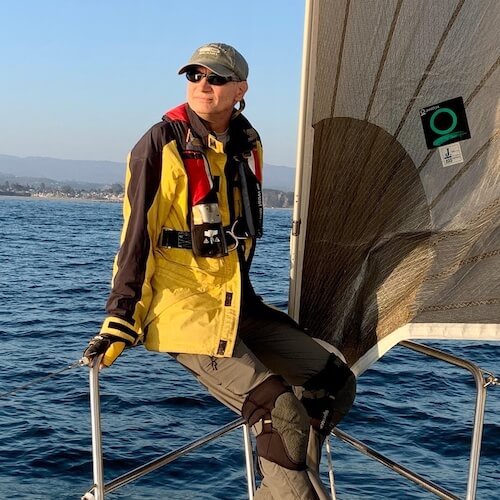

“It's time for my heart to be nurtured on one level yet contained on another. To go easy on me and to allow my feelings to be validated, not judged harshly. On the other hand, to let the heart rule with equanimity and not lead the mind and body around like a master.”
–Suzanne
“I spend time thinking of everything I am grateful for, and I try to develop my ability to express compassion for myself and others without reservation. I take time to do the things I need to do to keep myself healthy and happy. This includes taking experiential workshops, fostering relationships, and participating within groups which have a similar interest to become a more compassionate and fulfilled being.“
–Peter
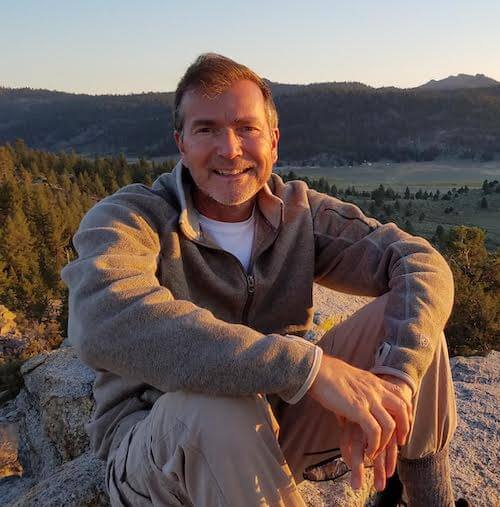
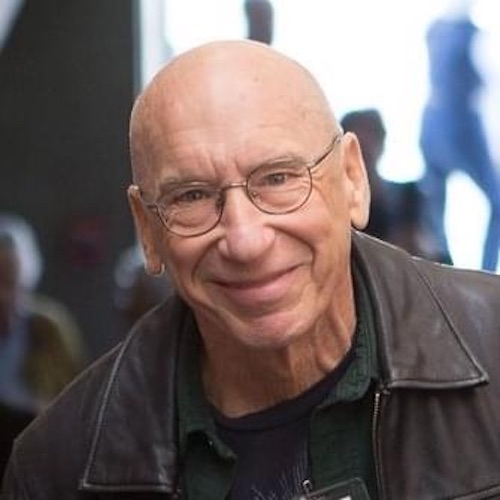
“Self-forgiveness for my own judgments. And oh yeah, coming to Esalen.”
–David B.
“Hmm, this is a tough one! I guess I take care of my heart through fostering relationships with people I feel connected to. Spending quality time with them (whether we're on the phone, through messages/letters, on Zoom, or in-person). Being there for them, listening to them, sharing what's going on with me, my struggles and my successes... like we do in the Esalen weekly Friends of Esalen Zoom sessions!”
–Lori

“I remind myself in many ways of the fact that " Love is all there is!" LOVE is the prize and this one precious life is the stage we get to learn our lessons. I get out into nature, hike, camp, river kayak, fly fish, garden, I create, I dance (not enough!), and I remain grateful for each day, each breath, each moment. Being in the moment, awake, and remembering the gift of life and my feeling of gratitude for all of creation.”
–Steven
“My physical heart by limiting stress and eating a heart-healthy diet. My emotional heart by staying in love with the world and by knowing that all disappointment and loss will pass.“
–David Z.
Today, September 29, is World Heart Day. Strike up a conversation with your own heart and as you feel comfortable, encourage others to do the same. As part of our own transformations and self-care, we sometimes ask for others to illuminate and enliven our hearts or speak our love language.
What if we could do this for ourselves too, even if just for today… or to start a heart practice, forever?

"I prefer to think about what we’re doing right now as “cocooning.” Just as a caterpillar takes time to cocoon in order to reconstitute itself, before re-emerging as a butterfly, I believe we’re in the middle of a COVID-19-driven pause, a collective chrysalis. During this unique pause, we have an ideal moment to stop, think, reflect on what truly matters most in life and how each of us might become the very best version of ourselves."
—Ken Dychtwald
In September, Ken Dychtwald, a longtime friend of Esalen, marks his 50th anniversary of when he first came to Esalen to study and live at the age of 20. A former resident, group leader, donor and supporter, Ken is also a psychologist, gerontologist and CEO of Age Wave, the nation's foremost thought leader on issues relating to an aging population. His best-selling books include Bodymind—Age Wave and Healthy Aging, and his new book, What Retirees Want: A Holistic View of Life’s Third Age, explains how the aging of the Baby Boomers will forever change our lives, businesses, government programs and the consumer marketplace.
Ken and his wife, Maddy, were the recipients of the 2016 Esalen Prize for their tireless efforts to make a difference in the lives of older adults globally. Ken opens up about longevity in modern times, his new book and much more with Esalen News.
Esalen News: Much of America, including where you live in Northern California, is still under some level of shelter-in-place order. How has your experience been?
Ken Dychtwald: I’ve chosen not to think about this as “sheltering” in place. When I was a kid, we had a bomb shelter in our house in Newark, NJ. That was clearly protection from fear. I prefer to think about what we’re doing right now as “cocooning.” Just as a caterpillar takes time to cocoon in order to reconstitute itself before re-emerging as a butterfly, I believe we’re in the middle of a COVID-19-driven pause, a collective chrysalis.
The whole world is going through a near death experience—perhaps the life you were living just died or you’re worried about someone you love dying or you’re possibly even thinking about your own mortality. During this unique pause, we have an ideal moment to stop, think, reflect on what truly matters most in life and how each of us might become the very best version of ourselves. Maybe I’m a dreamer, but I’m hoping we can all come through this together and find a way to make a better world.
While you’ve been cocooning, you also celebrated your 70th birthday. How did that feel?
It was peculiar because the day before my birthday in late March, I was supposed to be keynoting the general session before thousands of people at the American Society on Aging conference in Atlanta. I thought it would be a great way to highlight the transition from my seventh to my eighth decade of life. From there, my wife and I were scheduled to fly to meet our kids in the Caribbean to spend the week bonding, playing and partying. Instead, for my birthday, we had a group Zoom call.
Our daughter Casey, who’s 33 and lives in Los Angeles; our son Zak, who is 30 and had been living in China but was forced to hunker down in Brooklyn; and my older brother Alan, who lives in Florida. I asked something different of my wife—rather than trying to find a gift, I’d just like for each of you to tell me three things from your heart. First, what do you feel was the best experience we ever had together? Second, what quality of mine do you love the most? And third, what has been the best day of your life so far?
It turns out, what they said in that Zoom call were the most wonderful birthday gifts I could ever receive. I had felt sad going into my birthday: I couldn’t travel, I couldn’t be with all the people I love most, except my wife, but that call helped me feel so much gratitude for this life I’m living. It was the best birthday I ever had.
Do you feel aging has been an ascent for you—or a descent?
I’d say that physically I’m trying to keep it from being a descent. My lifelong commitment to body/mind health has been paying off and I think I’m doing pretty well. But I don’t have the body or vitality I did when I was young.
And even though I’ve been working out and also doing yoga for 50 years, I have to work diligently to manage my stress, high blood pressure and hypercholesterolemia. However, I would say that emotionally and mentally, I feel like my personal aging has most definitely been an ascent.
I like to think that I’ve not just been having birthdays but instead, in Star Trek fashion, I’ve been circling the sun 70 times and it’s been quite a wild ride. I feel a far greater sense of perspective than when I was younger—and every now and then I notice some buds of wisdom trying to bloom. I also feel far more appreciative of all the people I love and the friends I’ve made and the work that I’ve been fortunate to do.
Let me also add that watching the nurses and doctors on the front lines during this pandemic, I have deeper appreciation for the greatness in so many people and for how hard so many of us are trying. Lately, I’ve also come to realize that I don’t want to be young. Although I like the idea of feeling “youthful,” I am more drawn to wanting to be “useful” than youthful.
COVID-19 has altered our lives. What advice do you have for our community?
Here are a few suggestions for how we might best glide through this time of metamorphosis and emerge transformed:
What can you tell us about your new book What Retirees Want: A Holistic View of Life’s Third Age, which was published in July?
In 2004, my collaborator Bob Morison and I wrote the McKinsey Prize-winning article in the Harvard Business Review titled It’s Time to Retire Retirement. We became convinced that the word “retirement” is a far too small and narrow description for the new lifestage that’s now emerging. We believed that it was time to re-identify this formerly-known-as “retirement” lifestage to mean something far bigger and worthy of a new name.
How so?
A compelling philosophy has emerged from the European tradition of adult education that provides a simple yet visionary orientation to this issue. Referred to as “Le troisieme age”—the Third Age—this point of view proposes that there are three "ages" of man, each with its own special focus, challenge and opportunity.
In the First Age, from birth to approximately 30 years of age, the primary tasks of life center around biological development, learning and survival. In the Second Age, from about 30 to 60, the concerns of adult life focus on issues pertaining to the formation of family, parenting and productive work. Until the last century, most people couldn't expect to live much beyond the second age, and society at that time was thus centered on the concerns of this age.
And the Third Age?
With the rise of longevity and the coming of the age wave, a new era of human evolution is unfolding—the Third Age. There are new purposes to this Third Age of life. First, with the children grown and many of life's basic adult tasks either well under way or already accomplished, this less pressured, more reflective period allows the further development of the interior life of the intellect, memory, imagination, of emotional maturity, and of one's own personal sense of spiritual identity.
The third age has another dimension: there’s plenty of time and opportunity to try new things. Not just be reflective but explore new facets of life. Not just share wisdom but contribute directly to society in new ways. Not just “retire,” but maybe have an encore career, another modified go-round of life’s second age.
The Third Age is now full of potential for individuals, families and society. The scope of this potential is enormous and unprecedented. And from this perspective, elders are seen not as social outcasts, but as a living bridge between yesterday, today and tomorrow—a critical evolutionary role that no other age group can perform.
Learn more about Ken Dychtwald and his new book here. All of the earnings from this book—in perpetuity—are being given to the American Society on Aging, a professional association that played a very positive role in Ken's early decades in the field.
To experience Ken reflecting on The Alchemy of Esalen, enjoy this link.


“Remembering to be as self compassionate as I can and praying to the divine that we're all a part of.”
–Aaron
“Prayer, reading, meditation, walking.”
–Karen
“Erratically — which is an ongoing stream of practice to find peace.”
–Charles
“Try on a daily basis to be kind to myself and to realize that making mistakes is a part of the human condition. Learning from our mistakes is a journey. But it starts with compassion and caring. First for oneself.”
–Steve
“Physically: aerobic exercise, volleyball, ice hockey, cycling, sailing. Emotionally: unfortunately I have to work to ‘not care’ about people or situations which may end painfully. Along the lines of ‘attachment is the source of suffering’, so best to avoid it or limit its scope. Sad though because it could also be the source of great joy. Is it worth the risk?“
–Rainer


“It's time for my heart to be nurtured on one level yet contained on another. To go easy on me and to allow my feelings to be validated, not judged harshly. On the other hand, to let the heart rule with equanimity and not lead the mind and body around like a master.”
–Suzanne
“I spend time thinking of everything I am grateful for, and I try to develop my ability to express compassion for myself and others without reservation. I take time to do the things I need to do to keep myself healthy and happy. This includes taking experiential workshops, fostering relationships, and participating within groups which have a similar interest to become a more compassionate and fulfilled being.“
–Peter


“Self-forgiveness for my own judgments. And oh yeah, coming to Esalen.”
–David B.
“Hmm, this is a tough one! I guess I take care of my heart through fostering relationships with people I feel connected to. Spending quality time with them (whether we're on the phone, through messages/letters, on Zoom, or in-person). Being there for them, listening to them, sharing what's going on with me, my struggles and my successes... like we do in the Esalen weekly Friends of Esalen Zoom sessions!”
–Lori

“I remind myself in many ways of the fact that " Love is all there is!" LOVE is the prize and this one precious life is the stage we get to learn our lessons. I get out into nature, hike, camp, river kayak, fly fish, garden, I create, I dance (not enough!), and I remain grateful for each day, each breath, each moment. Being in the moment, awake, and remembering the gift of life and my feeling of gratitude for all of creation.”
–Steven
“My physical heart by limiting stress and eating a heart-healthy diet. My emotional heart by staying in love with the world and by knowing that all disappointment and loss will pass.“
–David Z.
Today, September 29, is World Heart Day. Strike up a conversation with your own heart and as you feel comfortable, encourage others to do the same. As part of our own transformations and self-care, we sometimes ask for others to illuminate and enliven our hearts or speak our love language.
What if we could do this for ourselves too, even if just for today… or to start a heart practice, forever?

"I prefer to think about what we’re doing right now as “cocooning.” Just as a caterpillar takes time to cocoon in order to reconstitute itself, before re-emerging as a butterfly, I believe we’re in the middle of a COVID-19-driven pause, a collective chrysalis. During this unique pause, we have an ideal moment to stop, think, reflect on what truly matters most in life and how each of us might become the very best version of ourselves."
—Ken Dychtwald
In September, Ken Dychtwald, a longtime friend of Esalen, marks his 50th anniversary of when he first came to Esalen to study and live at the age of 20. A former resident, group leader, donor and supporter, Ken is also a psychologist, gerontologist and CEO of Age Wave, the nation's foremost thought leader on issues relating to an aging population. His best-selling books include Bodymind—Age Wave and Healthy Aging, and his new book, What Retirees Want: A Holistic View of Life’s Third Age, explains how the aging of the Baby Boomers will forever change our lives, businesses, government programs and the consumer marketplace.
Ken and his wife, Maddy, were the recipients of the 2016 Esalen Prize for their tireless efforts to make a difference in the lives of older adults globally. Ken opens up about longevity in modern times, his new book and much more with Esalen News.
Esalen News: Much of America, including where you live in Northern California, is still under some level of shelter-in-place order. How has your experience been?
Ken Dychtwald: I’ve chosen not to think about this as “sheltering” in place. When I was a kid, we had a bomb shelter in our house in Newark, NJ. That was clearly protection from fear. I prefer to think about what we’re doing right now as “cocooning.” Just as a caterpillar takes time to cocoon in order to reconstitute itself before re-emerging as a butterfly, I believe we’re in the middle of a COVID-19-driven pause, a collective chrysalis.
The whole world is going through a near death experience—perhaps the life you were living just died or you’re worried about someone you love dying or you’re possibly even thinking about your own mortality. During this unique pause, we have an ideal moment to stop, think, reflect on what truly matters most in life and how each of us might become the very best version of ourselves. Maybe I’m a dreamer, but I’m hoping we can all come through this together and find a way to make a better world.
While you’ve been cocooning, you also celebrated your 70th birthday. How did that feel?
It was peculiar because the day before my birthday in late March, I was supposed to be keynoting the general session before thousands of people at the American Society on Aging conference in Atlanta. I thought it would be a great way to highlight the transition from my seventh to my eighth decade of life. From there, my wife and I were scheduled to fly to meet our kids in the Caribbean to spend the week bonding, playing and partying. Instead, for my birthday, we had a group Zoom call.
Our daughter Casey, who’s 33 and lives in Los Angeles; our son Zak, who is 30 and had been living in China but was forced to hunker down in Brooklyn; and my older brother Alan, who lives in Florida. I asked something different of my wife—rather than trying to find a gift, I’d just like for each of you to tell me three things from your heart. First, what do you feel was the best experience we ever had together? Second, what quality of mine do you love the most? And third, what has been the best day of your life so far?
It turns out, what they said in that Zoom call were the most wonderful birthday gifts I could ever receive. I had felt sad going into my birthday: I couldn’t travel, I couldn’t be with all the people I love most, except my wife, but that call helped me feel so much gratitude for this life I’m living. It was the best birthday I ever had.
Do you feel aging has been an ascent for you—or a descent?
I’d say that physically I’m trying to keep it from being a descent. My lifelong commitment to body/mind health has been paying off and I think I’m doing pretty well. But I don’t have the body or vitality I did when I was young.
And even though I’ve been working out and also doing yoga for 50 years, I have to work diligently to manage my stress, high blood pressure and hypercholesterolemia. However, I would say that emotionally and mentally, I feel like my personal aging has most definitely been an ascent.
I like to think that I’ve not just been having birthdays but instead, in Star Trek fashion, I’ve been circling the sun 70 times and it’s been quite a wild ride. I feel a far greater sense of perspective than when I was younger—and every now and then I notice some buds of wisdom trying to bloom. I also feel far more appreciative of all the people I love and the friends I’ve made and the work that I’ve been fortunate to do.
Let me also add that watching the nurses and doctors on the front lines during this pandemic, I have deeper appreciation for the greatness in so many people and for how hard so many of us are trying. Lately, I’ve also come to realize that I don’t want to be young. Although I like the idea of feeling “youthful,” I am more drawn to wanting to be “useful” than youthful.
COVID-19 has altered our lives. What advice do you have for our community?
Here are a few suggestions for how we might best glide through this time of metamorphosis and emerge transformed:
What can you tell us about your new book What Retirees Want: A Holistic View of Life’s Third Age, which was published in July?
In 2004, my collaborator Bob Morison and I wrote the McKinsey Prize-winning article in the Harvard Business Review titled It’s Time to Retire Retirement. We became convinced that the word “retirement” is a far too small and narrow description for the new lifestage that’s now emerging. We believed that it was time to re-identify this formerly-known-as “retirement” lifestage to mean something far bigger and worthy of a new name.
How so?
A compelling philosophy has emerged from the European tradition of adult education that provides a simple yet visionary orientation to this issue. Referred to as “Le troisieme age”—the Third Age—this point of view proposes that there are three "ages" of man, each with its own special focus, challenge and opportunity.
In the First Age, from birth to approximately 30 years of age, the primary tasks of life center around biological development, learning and survival. In the Second Age, from about 30 to 60, the concerns of adult life focus on issues pertaining to the formation of family, parenting and productive work. Until the last century, most people couldn't expect to live much beyond the second age, and society at that time was thus centered on the concerns of this age.
And the Third Age?
With the rise of longevity and the coming of the age wave, a new era of human evolution is unfolding—the Third Age. There are new purposes to this Third Age of life. First, with the children grown and many of life's basic adult tasks either well under way or already accomplished, this less pressured, more reflective period allows the further development of the interior life of the intellect, memory, imagination, of emotional maturity, and of one's own personal sense of spiritual identity.
The third age has another dimension: there’s plenty of time and opportunity to try new things. Not just be reflective but explore new facets of life. Not just share wisdom but contribute directly to society in new ways. Not just “retire,” but maybe have an encore career, another modified go-round of life’s second age.
The Third Age is now full of potential for individuals, families and society. The scope of this potential is enormous and unprecedented. And from this perspective, elders are seen not as social outcasts, but as a living bridge between yesterday, today and tomorrow—a critical evolutionary role that no other age group can perform.
Learn more about Ken Dychtwald and his new book here. All of the earnings from this book—in perpetuity—are being given to the American Society on Aging, a professional association that played a very positive role in Ken's early decades in the field.
To experience Ken reflecting on The Alchemy of Esalen, enjoy this link.


“Remembering to be as self compassionate as I can and praying to the divine that we're all a part of.”
–Aaron
“Prayer, reading, meditation, walking.”
–Karen
“Erratically — which is an ongoing stream of practice to find peace.”
–Charles
“Try on a daily basis to be kind to myself and to realize that making mistakes is a part of the human condition. Learning from our mistakes is a journey. But it starts with compassion and caring. First for oneself.”
–Steve
“Physically: aerobic exercise, volleyball, ice hockey, cycling, sailing. Emotionally: unfortunately I have to work to ‘not care’ about people or situations which may end painfully. Along the lines of ‘attachment is the source of suffering’, so best to avoid it or limit its scope. Sad though because it could also be the source of great joy. Is it worth the risk?“
–Rainer


“It's time for my heart to be nurtured on one level yet contained on another. To go easy on me and to allow my feelings to be validated, not judged harshly. On the other hand, to let the heart rule with equanimity and not lead the mind and body around like a master.”
–Suzanne
“I spend time thinking of everything I am grateful for, and I try to develop my ability to express compassion for myself and others without reservation. I take time to do the things I need to do to keep myself healthy and happy. This includes taking experiential workshops, fostering relationships, and participating within groups which have a similar interest to become a more compassionate and fulfilled being.“
–Peter


“Self-forgiveness for my own judgments. And oh yeah, coming to Esalen.”
–David B.
“Hmm, this is a tough one! I guess I take care of my heart through fostering relationships with people I feel connected to. Spending quality time with them (whether we're on the phone, through messages/letters, on Zoom, or in-person). Being there for them, listening to them, sharing what's going on with me, my struggles and my successes... like we do in the Esalen weekly Friends of Esalen Zoom sessions!”
–Lori

“I remind myself in many ways of the fact that " Love is all there is!" LOVE is the prize and this one precious life is the stage we get to learn our lessons. I get out into nature, hike, camp, river kayak, fly fish, garden, I create, I dance (not enough!), and I remain grateful for each day, each breath, each moment. Being in the moment, awake, and remembering the gift of life and my feeling of gratitude for all of creation.”
–Steven
“My physical heart by limiting stress and eating a heart-healthy diet. My emotional heart by staying in love with the world and by knowing that all disappointment and loss will pass.“
–David Z.
Today, September 29, is World Heart Day. Strike up a conversation with your own heart and as you feel comfortable, encourage others to do the same. As part of our own transformations and self-care, we sometimes ask for others to illuminate and enliven our hearts or speak our love language.
What if we could do this for ourselves too, even if just for today… or to start a heart practice, forever?